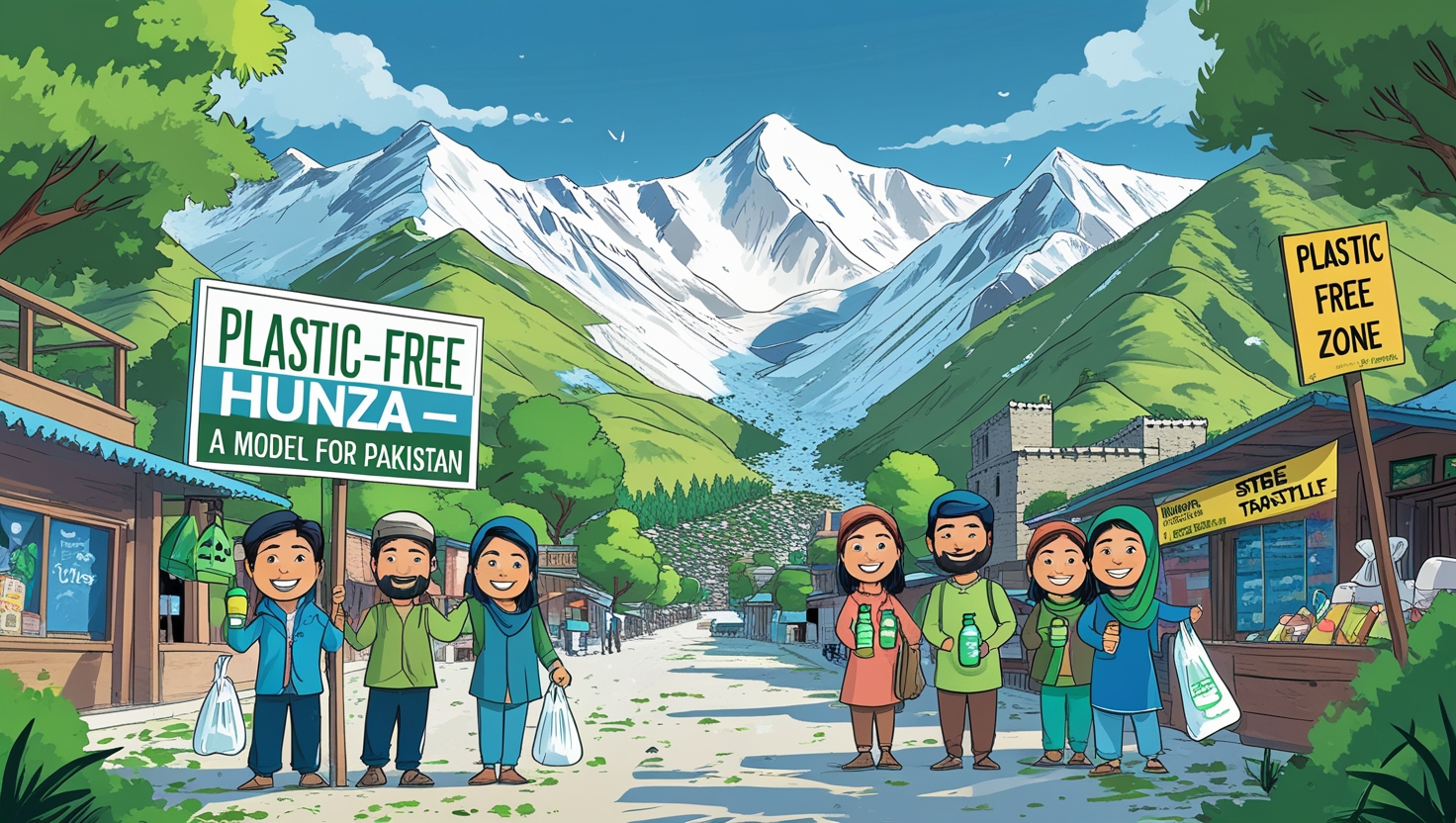

When you step into the scenic valley of Hunza, something feels refreshingly different. It’s not just the crisp mountain air or the snow-covered peaks—it’s the visible absence of plastic litter. Once plagued with plastic waste like many other tourist spots in Pakistan, Hunza is now being hailed as a model for climate action and zero waste tourism.
Hunza's journey to becoming a plastic-free city wasn’t driven by international organizations—it started from within. Local citizens, environmental activists, and small businesses came together to say enough is enough. Inspired by the region’s natural beauty, Hunza’s people launched grassroots efforts to phase out plastic bags and single-use items.
In 2018, the local government officially banned plastic bags, setting a bold example for other cities. Instead of resistance, the ban was met with surprising support—locals began using cloth bags and biodegradable packaging, creating new opportunities for women-led businesses and traditional handicrafts.
Tourism is a double-edged sword. While it brings revenue and attention, it also increases pollution. But in Hunza, many travelers were part of the solution. Eco-tourists began carrying their own reusable bottles and bags, while local hotels and cafes introduced refill stations and waste sorting bins.
According to a UNDP report, Hunza is one of the few regions in Pakistan where tourism is being reshaped to align with sustainability goals. This shows how responsible travel can empower local economies while preserving fragile ecosystems.
So, what can cities like Lahore, Karachi, or Islamabad learn from Hunza? First, that policy alone is not enough—it must be backed by community ownership. Second, that awareness campaigns need to be hyper-local and culturally relevant. And finally, that change can begin even without massive budgets or foreign aid.
Organizations like WWF Pakistan and Green Pakistan Programme have provided toolkits and support to replicate Hunza’s success. But the real magic lies in empowering citizens, especially youth, to lead the anti-plastic movement in their own neighborhoods.
Hunza’s plastic ban gave rise to local entrepreneurs making cloth bags, metal water bottles, beeswax wraps, and handmade soaps. Not only do these products reduce waste—they also revive traditional crafts and support local jobs. It's a win-win for the environment and the economy.
It’s easy to feel powerless in the face of climate change, but Hunza proves otherwise. A single valley took bold steps, and the ripple effects are reaching across Pakistan. Every reusable bag, every skipped straw, and every informed conversation matters.